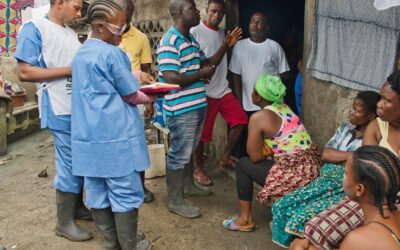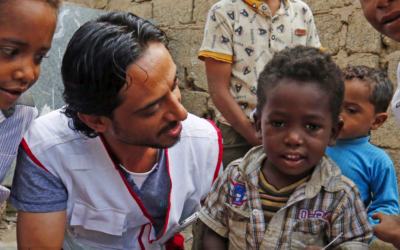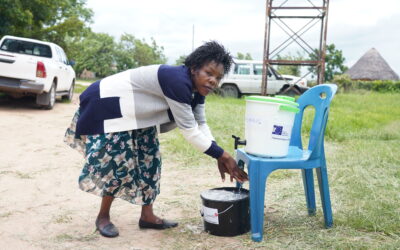On Thursday, October 12th, UNICEF ESARO, with the support of partner agencies, led the first Design for Health Hackathon on Redesigning Cholera Response Challenge in Nairobi. The event brought together partners, designers and innovators, researchers and donors to rethink and redesign the cholera health service experience by closely examining behaviours across the journey to health. Participants competed to develop and pitch innovative ideas on reduce cholera-related mortality by improving the cholera service experience to a panel of technical experts and donors.
Cholera outbreakS in esar
In just the first half of 2023, 13 countries in the East and Southern Africa region have experienced cholera outbreaks. Many of these outbreaks have had high case fatality rates and prolonged responses related to inadequate investments in water and sanitation infrastructure, further compounded by the effects of climate change.
Findings from qualitative assessments in some countries including Malawi, demonstrated a lack of trust in health services resulting in delayed health seeking behaviour, which has been identified as a critical factor in the high case fatality rate. With shortages of oral cholera vaccine, without significant investments in infrastructure against a backdrop of climate change and the predicted El Nino event expected to escalate cholera outbreaks in both northern and southern East Africa, efforts to control the spread of cholera and reduce mortality need to urgently address barriers to home treatment and timely care seeking.
While longer term essential infrastructural investments and developments are underway across various countries in East and Southern Africa, the Hackathon aimed to address the urgent need to reduce mortality from cholera NOW.
Hackathon objectives and Design Challenge
The main objectives include:
- Deepening the understanding of barriers and behaviours that affect successful cholera response
- Developing innovative ideas for improving the experience of cholera response services and promoting timely health seeking behaviours during cholera outbreaks, and uptake of ORS
- Fostering and strengthening partnerships between designers, donors, and community of practice.
Human-centred design (HCD) is used by health and immunization programmes to gather social and behavioural insights around client experiences of health services. By applying design thinking techniques, health programmes can identify and deepen understanding of the barriers and points of friction before, during and after services. Through empathising with client perspectives around the health experience, health and community workers and programmers can adapt the way those services are delivered to improve uptake.
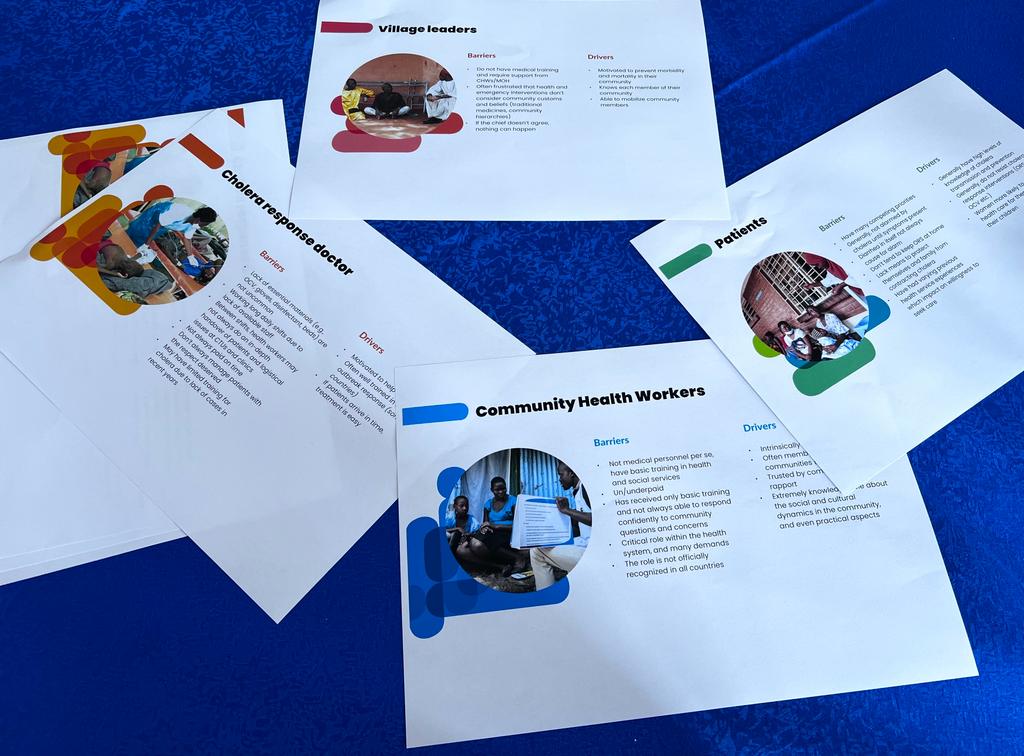
The Hackathon aimed to promote offline solutions that build on the existing ecosystem of tools and cholera response approaches.
To support this, the participants were equipped with contextual information on the current approaches to cholera outbreak response and the journey to health from a wide range of perspectives:
- community members,
- health workers,
- and community leaders.
Design Challenge
- PURPOSE – How might we reduce mortality from Cholera NOW?
- CHALLENGE – How can we improve the experience of cholera services to increase both UPTAKE OF ORS and TIMELY HEALTH SEEKING BEHAVIOUR in the first signs of cholera?
Competing teams and winning project
On October 12th, a range of participants, from Design thinkers and innovators to public health emergency joined forces to address the persistent barriers to quality cholera care in the region and innovate on cholera response. They consisted of user experience researchers and designers from the Nairobi Design Community Of Practice (Busara, Dalberg, YUX, Africa’s Talking, MAKL, Mideva Labs, Peri Bloom, Stamp Clean Tech). They were self-organized with some design companies choosing to compete as a firm, and some mixing with other studios.
An immersive experience was created including a cholera treatment unit which was set up by MSF to help designers to understand and empathise with people experiencing cholera symptoms. Technical experts from UNICEF, WHO, IFRC, MSF, OXFAM were assigned the role of “resource person” and embedded in the groups to answer any technical questions as the designers developed their intervention idea.
The participants, divided in five teams, presented the best intervention design for partners to take forward for implementation. Designs were presented to a panel of experts from across different agencies, including MSF’s Cholera Response Lead, UNICEF Health Specialist & Senior Behavioral Scientist.
The panel selected the ParaBoda design project as the winner of the Hackathon. The design project consists in:
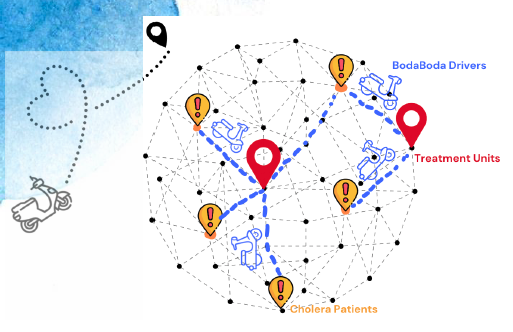
- Engaging local BodaBoda drivers to offer subsidized lifts to Oral Rehydration Points (ORP) and Cholera Treatment Units (CTU)”
- Monitoring trips through GPS by the response partners to ensure tracking of ride and alert messages sent to ORPs/CTUs to ensure materials are ready on arrival
- Tracking of rides can also support adequate sanitation protocols followed for drivers and bodas between rides
- Equipping Boda drivers to share essential information about the Cholera Response & contact tracing
The details of the Hackathon challenge will be presented during the next RCCE Team Working Group meeting on Wednesday, November 1st and the winning team for Paraboda design project will also pitch their idea.
Note to the participants from the organisers:
“Thank you for joining us for our first ever Design for Health Hackathon last Thursday and making the event a huge success!
It was a pleasure to meet all of you and innovate on the regional cholera response. We will be reaching out to the winning team separately to support preparations of a pitch to the extended regional health emergencies partners and refine the ParaBoda innovation and implementation plan before taking this forward.
While we can only take one intervention forward, we want to extend sincere thanks to all who participated for the great ideas and energy you brought to the hackathon.
As we plan for future Design for Health Hackathons we look forward to continued collaboration and partnership!”
[Access the Design Challenge Summary Presentation here]
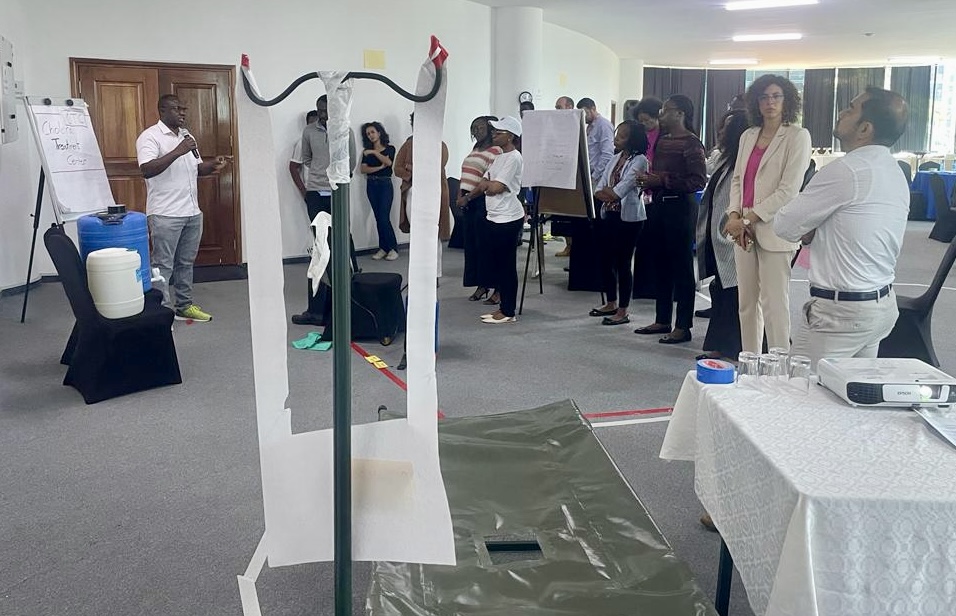
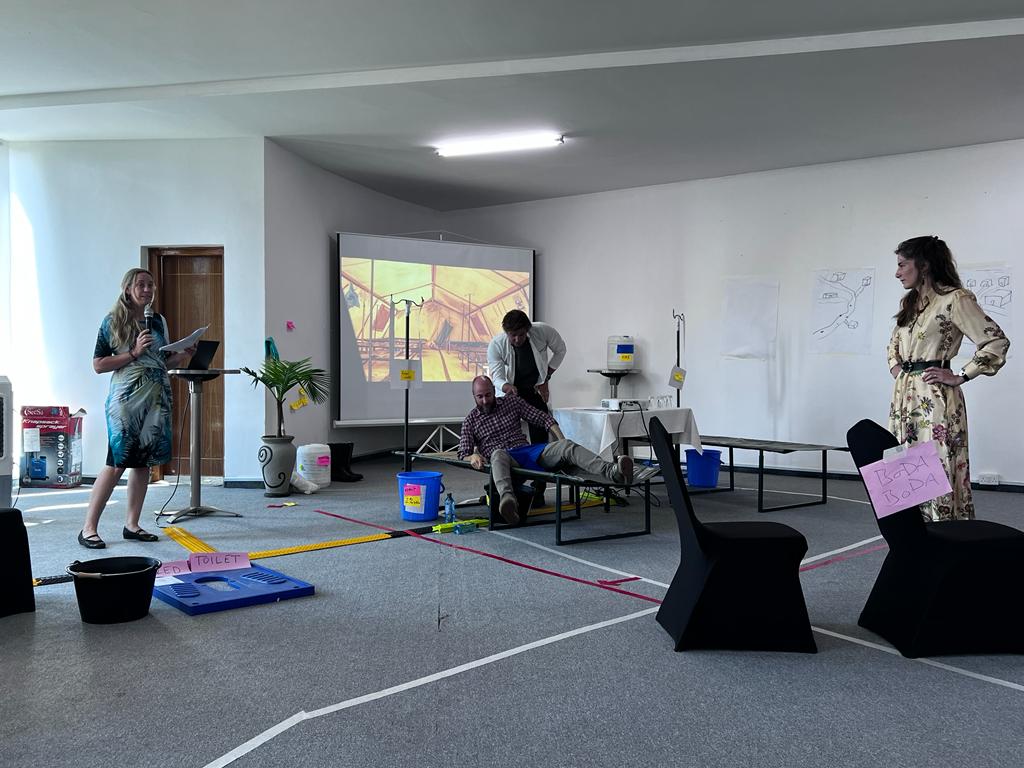
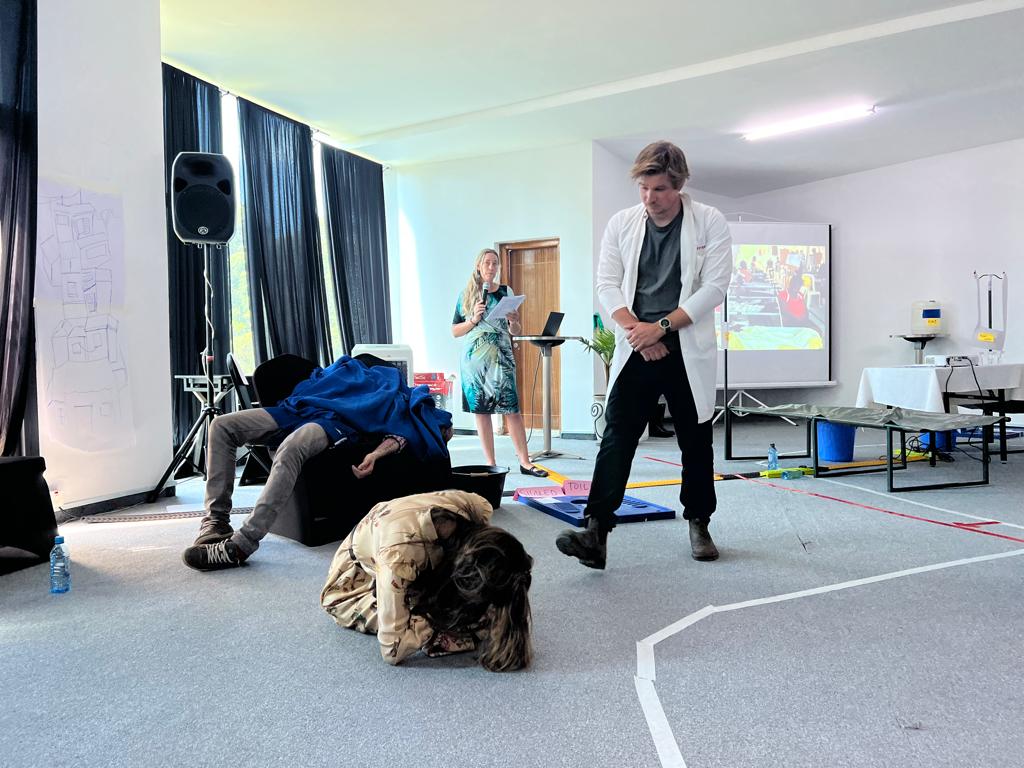
Cholera treatment unit immersive experience set up by MSF
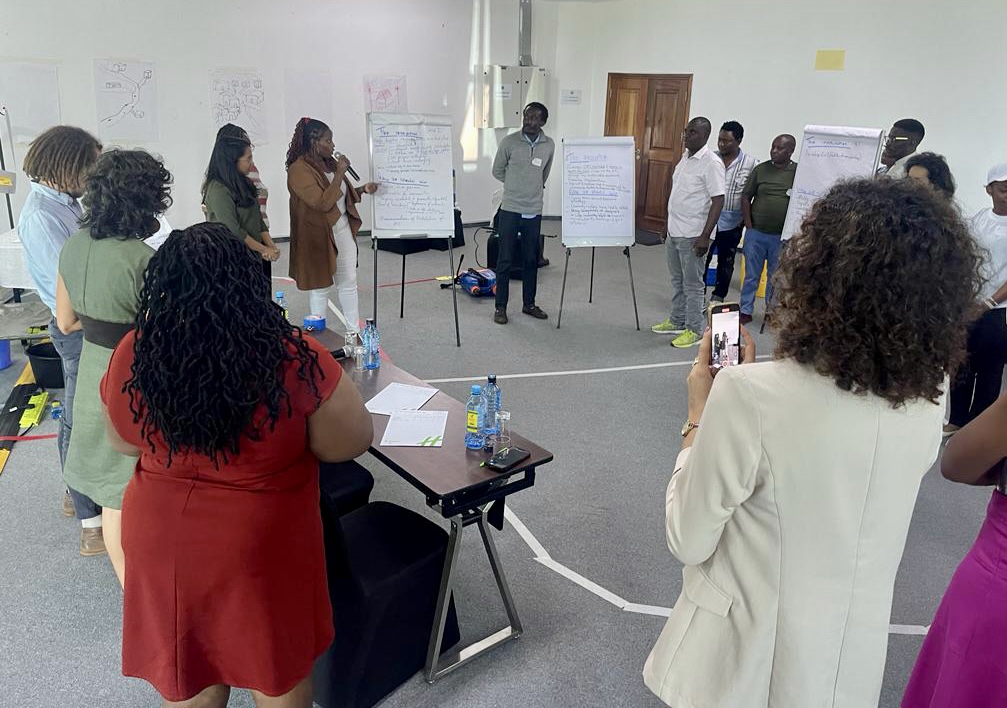
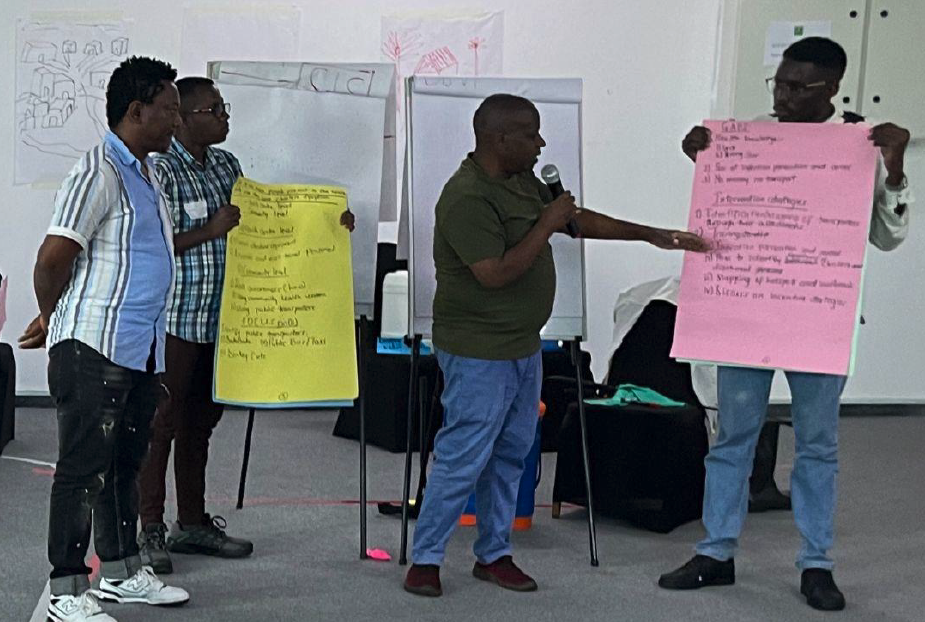
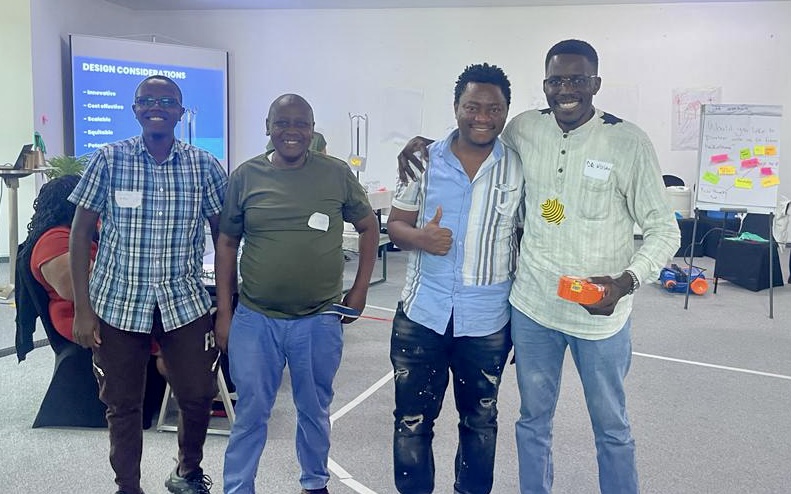
Working groups, one of the five teams pitching and the winning team for the Paraboda design project

